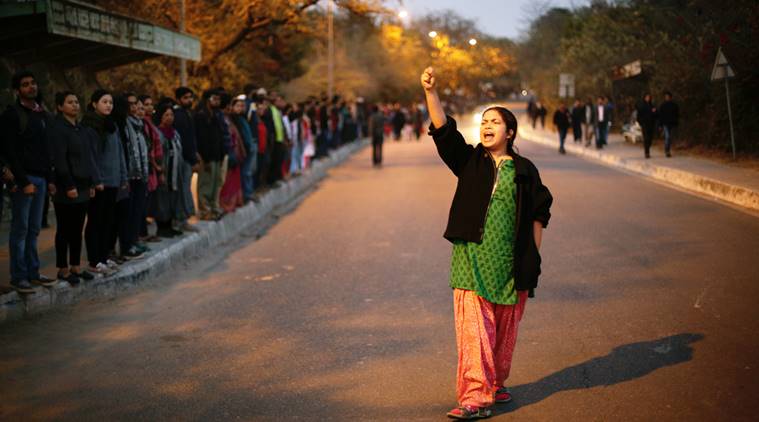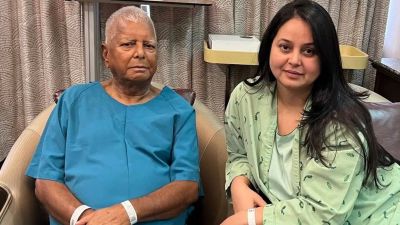The arrest of JNU Students Union president Kanhaiya Kumar on charges of sedition has attracted both criticism and support. Even as the controversy snowballs into a political free-for-all, surprisingly, it hasn’t evoked a response from top educational institutions of the country.

[related-post]
Here is what each had to say when asked for their reaction to Kumar’s arrest and the charge that the police have overreached by slapping sedition charge:
M Jagadesh Kumar, Vice-Chancellor, JNU
Story continues below this ad
“I cannot comment on what happens outside the purview of the university. I can only say that our internal probe committee will examine the video and audio footage and has time till February 25 to submit its findings.”
Prof S Parasuraman, Director, TISS, Mumbai
“The nation’s interest is of utmost importance and we cannot compromise on that. I’m not sure how this (JNU incident) happened and if the slogans were raised by students or outsiders who entered the university campus. This should be investigated.
If such slogans were indeed used by the students then it’s important that they are identified, isolated and counseled rather than slapping sedition charges against them. Invoking the sedition law will not leave any hope for constructive dialogue. It will only divide the campus further.
Moreover, the government and political parties should help create a conducive environment on campus and not exacerbate the situation. Politicising this incident is not going to help.”
Dr M C Misra, Director, AIIMS, Delhi
Story continues below this ad
“India is a soft state and hasn’t been dealing with illegal activities as firmly as it should. This is why people are encouraged to say whatever they want. If you see the video footage, it’s repulsive. What are we doing? We have taken the freedom of speech too far.
Those shouting anti-India slogans are trying to make a hero out of Afzal Guru. This, in my opinion, is worse than sedition. Those elements should be identified and dealt with firmly. I would have said this even if my daughter was in that group shouting slogans. Which country outside of India will allow this?”
Prof Talat Ahmed, V-C, Jamia Millia Islamia, Delhi
“Raising anti-country slogans is worrying and should be condemned. But I don’t want to comment on the student’s arrest as the police may have a case to take such action. Kisi ne apni samajh se complaint file ki hai (someone thought it was okay to lodge a police complaint), how can I say whether the arrest was wrong or right?”
Prof R Venkata Rao, V-C, National Law School of India University, Bangalore
Story continues below this ad
“Raising anti-national slogans ought not to be tolerated. There is a difference between peaceful protest march and raising anti-national slogans. While a peaceful protest march may come within the internal matters of the university, raising anti-national slogans is definitely not an internal matter.
If it is just a peaceful protest march, it needs to be tolerated and sedition charges are uncalled for. However, if there is clear and palpable evidence that anti-national slogans have been raised, then law must take its own course. In a liberal democracy, knee-jerk reactions should be avoided as far as possible. It should be noted that sedition has become an arcane offence. It is an irony that it still finds a place in our statute books, though it was abolished in Britain in 2009 through the Coroners and Justice Act, 2009.”
Prof Saibal Chattopadhyay, Director, IIM-Calcutta
“I don’t want to comment on this issue as it could create further confusion. There are many political parties involved at this moment. Hopefully there will be a solution soon.”
Chaitan Vaidya, Director, School of Planning and Architecture, New Delhi
“I have no comments on this.”
Devang V Khakhar, Director, IIT Bombay
Story continues below this ad
“I have no comments to make. I am not familiar with the case.”
Bhaskar Ramamurthi, Director, IIT Madras
“I have no idea. I don’t want to comment. I can’t form an opinion unless I have full details (of the case).”
The following did not respond to calls, SMSes and emails sent by The Indian Express.
Ashish Nanda, Director, IIM Ahmedabad; Sushil Vachani, Director, IIM Bangalore; Partha Pratim Chakrabarti, Director, IIT Kharagpur; Sudhish Pachauri, Acting Vice-Chancellor, Delhi University and Waman Kendra, Director, National School of Drama.

 A student shouts slogans as JNU teachers and students form a human chain inside the campus in protest against arrest of JNUSU President Kanhaiya Kumar on Sunday. (Source: Express photo by Oinam Anand)
A student shouts slogans as JNU teachers and students form a human chain inside the campus in protest against arrest of JNUSU President Kanhaiya Kumar on Sunday. (Source: Express photo by Oinam Anand)






